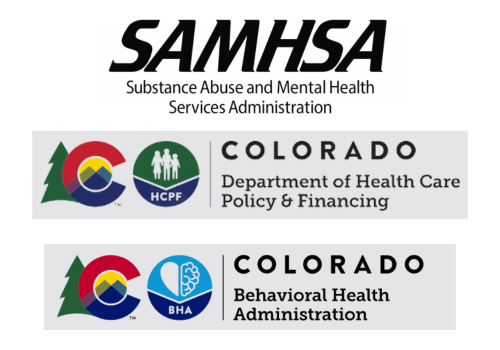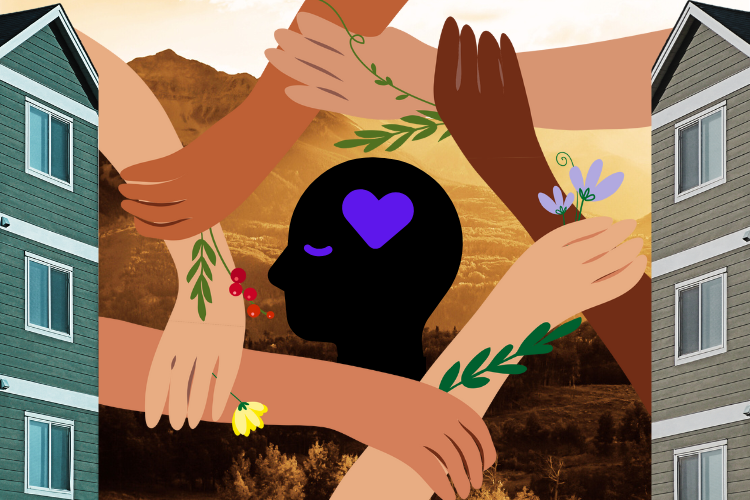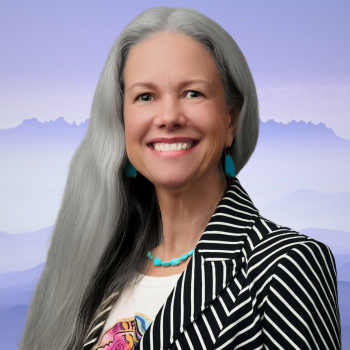By Renata Hill, Moodfuel
Colorado has received a $1 million grant for planning a new system of mental health care by combining a federal model with state safety net services
The Substance Abuse and Mental Health Services Administration (SAMHSA) has awarded Colorado $1 million through a planning grant to create a new approach to community mental health care. The plan will reform Colorado's problematic mental health "safety net" structure while combining it with a SAMHSA model for a wraparound system of care known as Certified Community Behavioral Health Clinics (CCBHCs).
The CCBHCs must accept people in crisis immediately, 24 hours a day, every day. Neighbors who need ongoing mental health treatment must be accommodated promptly. In a sense, Colorado will be creating a hybrid design involving two main stakeholder groups:
-
Residents, who will benefit from:
- expanded access to comprehensive services regardless of ability to pay, insurance coverage, place of residence or age
- a higher quality of care from federally and state-certified providers who are competently trained to interact with and support the complex needs of patients, like those with co-occurring brain illnesses and substance misuse
- one-stop facilities statewide offering all services instead of multiple providers, multiple locations and multiple infrastructures.
-
Providers, who will benefit from:
- new standards to ensure personnel are properly trained to understand, assess and serve every person who comes through their doors
- new state certification that guides existing and new organizations through the process of becoming recognized as CCBHCs
- new operating categories -- Comprehensive Safety Net Providers and Essential Safety Net Providers -- allowing smaller practices and diverse provider types to qualify for increased, more prompt Medicaid reimbursement, particularly in rural areas.
The standardization of billing, record keeping and reporting also will aid state agencies in the long term to better review, supervise and audit clinic performance.
The Colorado Department of Health Care Policy & Financing (HCPF) and the Colorado Behavioral Health Administration (BHA) will administer the planning grant. HCPF will manage the finance and Medicaid aspects and BHA will manage the certification and onboarding of providers.
“This exciting award is the result of BHA and HCPF’s ongoing collaborative efforts to seek out innovative strategies and financial pathways to strengthen and expand Colorado’s behavioral health continuum,” said BHA Commissioner Dannette R. Smith in an email. “We look forward to working in partnership with HCPF and with communities around the state to utilize these funds to further explore the CCBHC model and its potential to bolster Colorado’s Safety Net System.”
Currently, seven federally certified CCBHCs exist in Colorado that will participate in the new, SAMHSA-required state certification:
- Aurora Mental Health and Recovery serving Arapahoe and Adams Counties
- Axis Health System serving the Western Slope
- Denver Health serving Denver County
- Jefferson Center for Mental Health serving Jefferson County
- Mental Health Partners serving Adams, Boulder, Broomfield and Gilpin Counties
- North Range Behavioral Health serving Weld County
- Solvista Health serving western and southern Colorado.
In addition, HCPF will shepherd five more clinics toward becoming certified CCBHCs. Certification is critical for these clinics in order to receive reimbursement through Medicaid at higher, more competitive rates.
According to the planning grant application submitted to SAMHSA by HCPF on Sep. 11, 2024, these clinics promise to prioritize residents whom the state considers under-resourced, such as those who are:
- Housing insecure
- Young and at-risk
- Black, Indigenous or other People of Color
- Veterans
- Pregnant
- Queer and/or Trans.
To ensure that the most marginalized Coloradans are reached, SAMHSA expects HCPF to submit a data-driven Disparity Impact Statement. It will identify all populations facing mental health inequities and the actions taken to address them.

"This planning grant will be an intense period of listening, learning and development to ensure we establish the best system for Colorado,” said HCPF Deputy Medicaid Director Cristen Bates in an email. “HCPF and BHA have worked hard to build out changes in payment and oversight that align with this evidence-based program."
In a press release, Miriam E. Delphin-Rittmon, Ph.D., the assistant secretary at SAMHSA, said, “The planning phase for Certified Community Behavioral Health Clinics is an important part of states’ efforts to develop sustainable funding to support their communities’ health with equitable access to quality behavioral health care."
While mental health advocates in Colorado are hopeful, concern remains.
In an interview, President and CEO of Mental Health Colorado Vincent Atchity spoke about CCBHC implementation. "I have a lot of respect for the staff at (HCPF and BHA). The obstacles we face are how complicated (the health care system) is.”
Managing funding streams, program oversight and the new SAMHSA regulations will add to the workload at HCPF and BHA. According to Danielle Bennett, a SAMHSA spokesperson, Colorado will need to submit quarterly progress reports that include information on:
- The number of organizations in Colorado collaborating or sharing resources as a result of the grant
- The number of organizational changes made to support improvement of mental health-related practices
- The number of people trained in the mental health workforce.
Also, the BHA, still a young agency after its launch in 2022, has struggled with achieving cohesion, managing its workforce and meeting previously stated deadlines.
Adding more complexity, the deadline for states to allocate remaining American Rescue Plan Act (ARPA) funds expired December 31, 2024.
"The time frame for an additional infusion of funds is short ... I’ll be very interested in seeing if (the CCBHC process) accounts for additional federal funding coming to an end," said Atchity of the ARPA money.
President Trump hasn't spoken about his mental health policies yet. During his campaign, he mentioned returning to the use of mental institutions and tent cities for people who are unhoused and live with mental illness.
SAMHSA's focus may shift precipitously, but Bennett stated in an email that "there has been strong bipartisan support for investing in the CCBHC model that is expected to continue into the future."
The one-year planning grants were part of President Biden's Bipartisan Safer Communities Act of 2022 with the goal of tackling the mental health and overdose crises nationwide. In addition to Colorado, the District of Columbia and 13 other states received the grant, including Alaska, Connecticut, Delaware, Hawaii, Louisiana, Maryland, Montana, North Carolina, North Dakota, South Dakota, Utah, Washington and West Virginia.
Looking ahead, HCPF and BHA plan to prepare an application to participate in SAMSHA's four-year CCBHC Demonstration grant program beginning in 2026. The Demonstration application will use a scoring system similar to the one for the planning grant to select participant states.


